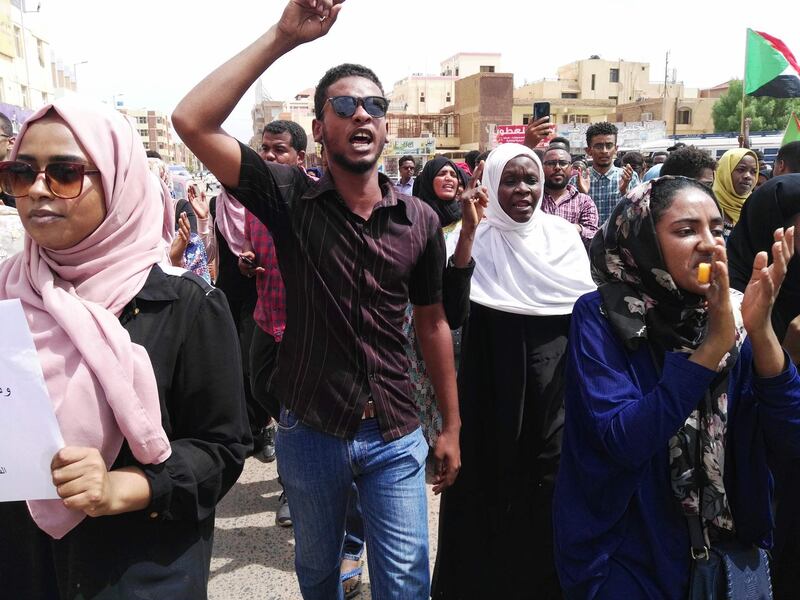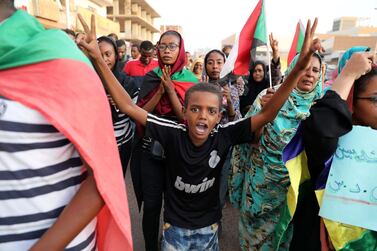Opposition leaders said on Thursday they had resolved major sticking points in talks with Sudan's military rulers, bringing them closer to a deal on forming a new transitional government after the ousting of long-time leader Omar Al Bashir.
The reported progress came three days after talks were thrown into question following the killing of six people, including four children, at a rally in Al Obeid as they protested over bread and fuel shortages.
Four more protesters were shot dead Thursday in Omdurman, the twin city of Sudan's capital Khartoum, a doctors committee linked to protesters said, as thousands demonstrated across the country against the deaths on Monday.
"Four protesters have been killed by live ammunition and several wounded at a rally in Omdurman," the committee said.
It was not immediately clear if the new deaths would affect the resumption of talks planned for later on Thursday.
Sudan has been gripped by months of political turmoil and street protests that climaxed in the army overthrowing Mr Al Bashir in April. Opposition groups kept up their demonstrations, demanding the army hand over to civilians.
Despite signing a deal in July which secured a three-year transition period and a joint sovereign council with a rotating leadership, talks over the wording of a constitutional declaration on the changes have stumbled.
"The agreement is really now just around the corner," Satea Al Hajj, a leader in the Forces of Freedom and Change (FFC) coalition of opposition groups, said in a press conference in Khartoum on Thursday.
The opposition had demanded that members of the sovereign council should not be granted blanket immunity from prosecution for past crimes, but FFC leaders said on Thursday they had agreed that they could be granted only 'procedural immunity' – meaning top officials could be tried with the permission of two-thirds of the legislative council.
The opposition leaders said both sides also agreed another key point, reaffirming that the parties included in the FFC would have 67 per cent of the legislative council while the rest will be granted to other opposition and political groups.
Sudan's ruling military council did not immediately confirm the details of the agreements.
Sporadic bouts of violence have delayed negotiations in the past, and the Sudanese Professionals Association, the main protest group and a leading voice in the FFC, called for mass demonstrations on Thursday in response to this week's killings.
On Wednesday, a top general in the ruling military council said that members of the feared paramilitary Rapid Support Forces (RSF) were responsible for the killings in Al Obeid, 400 km southwest of Khartoum.
The rally was initially stopped with batons by RSF forces who were guarding a nearby bank, Lieutenant General Jamal Aldin Omar Ibrahim said, before they then fired on the protesters.
"The force which was guarding the Sudanese French Bank fired the live rounds that led to the regrettable losses in the state of North Kordofan," he told reporters in Al Obeid late on Wednesday.
"This action led to a reaction from some students who threw stones at the forces," he continued. "This made some members of the force act in their individual capacity to open fire on protesters.”
He also blamed a teachers' committee associated with the SPA for the killings. Some committee members had incited the students to leave their schools and take part in the protests, he said.
Those culpable would be held to account, he said. “We have identified those who fired live ammunition that led to the killing of the six."
Sudan's official news agency SUNA reported that the accused have been handed over to authorities in North Kordofan state. They were sacked following orders from the RSF command and would face trial, it said.







